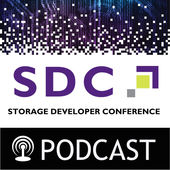SNIA Storage Developer Conference (SDC) 2015 is two weeks away, and the SNIA Technical Council is finalizing a strong, comprehensive agenda of speakers and sessions. Wherever your interests lie, you’re sure to find experts and topics that will expand your knowledge and fuel your professional development!
For the next two weeks, SNIA on Storage will highlight exciting interest areas in the 2015 agenda. If you have not registered, you need to! Visit www.storagedeveloper.org to see the four day overview and sign up.
Year after year, the File Systems Track at SDC provides in depth information on the latest technologies, and 2015 is no exception. The track kicks off with Vinod Eswaraprasad, Software Architect, Wipro, on Creating Plugin Modules for OpenStack Manila Services. He’ll discuss his work on integrating a multi-protocol NAS storage device to the OpenStack Manila service, looking at the architecture principle behind the scalability and modularity of Manila services, and the analysis of interface extensions required to integrate a typical NAS head.
Ankit Agrawal and Sachin Goswami of TCS will discuss How to Enable a Reliable and Economic Cloud Storage Solution by Integrating SSD with LTFS. They will share views on how to integrate SSD as a cache with a LTFS tape system to transparently deliver the best benefits for Object Base storage, and talk about the potential challenges in their approach and best practices that can be adopted to overcome these challenges.
Jakob Homan, Distributed Systems Engineer, Microsoft, will present Apache HDFS: Latest Developments and Trends. He’ll discuss the new features of HDFS, which has rapidly developed to meet the needs of enterprise and cloud customers, and take a look at HDFS at implementations and how they address previous shortcomings of HDFS.
James Cain, Principal Software Architect, Quantel Limited, will discuss a Pausable File System, using his own implementation of an SMB3 server (running in user mode on Windows) to demonstrate the effects of marking messages as asynchronously handled and then delaying responses in order to build up a complete understanding of the semantics offered by a pausable file system.
Ulrich Fuchs, Service Manager, CERN, will talk about Storage Solutions for Tomorrow’s Physics Projects, suggesting possible architectures for tomorrow’s storage implementations in this field, and showing results of first performance tests done on various solutions (Lustre, NFS, Block Object storage, GPFS ..) for typical application access patterns.
Neal Christiansen, Principal Development Lead, Microsoft, will present Support for New Storage Technologies by the Windows Operating System, describing the changes being made to the Windows OS, its file systems, and storage stack in response to new evolving storage technologies.
Richard Morris and Peter Cudhea of Oracle will discuss ZFS Async Replication Enhancements, exploring design decisions around enhancing the ZFS send and ZFS receive commands to transfer already compressed data more efficiently and to recover from failures without re-sending data that has already been received.
J.R. Tipton, Development Lead, Microsoft, will discuss ReFS v2: Cloning, Projecting, and Moving Data File Systems, presenting new abstractions that open up greater control for applications and virtualization, covering block projection and cloning as well as in-line data tiering.
Poornima Gurusiddaiah and Soumya Koduri of Red Hat will present Achieving Coherent and Aggressive Client Caching in Gluster, a Distributed System, discussing how to implement file system notifications and leases in a distributed system and how these can be leveraged to implement a client side coherent and aggressive caching.
Sriram Rao, Partner Scientist Manager, Microsoft, will present Petabyte-scale Distributed File Systems in Open Source Land: KFS Evolution, providing an overview of OSS systems (such as HDFS and KFS) in this space, and describing how these systems have evolved to take advantage of increasing network bandwidth in data center settings to improve application performance as well as storage efficiency.
Richard Levy, CEO and President, Peer Fusion, will discuss a High Resiliency Parallel NAS Cluster, including resiliency design considerations for large clusters, the efficient use of multicast for scalability, why large clusters must administer themselves, fault injection when failures are the nominal conditions, and the next step of 64K peers.
Join your peers as well – register now at www.storagedeveloper.org. And stay tuned for tomorrow’s blog on Cloud topics at SDC!
 can get a “sound bite” of what to expect by downloading SDC podcasts via iTunes, or visiting the SDC Podcast site at http://www.snia.org/podcasts to download the accompanying slides and/or listen to the MP3 version.
can get a “sound bite” of what to expect by downloading SDC podcasts via iTunes, or visiting the SDC Podcast site at http://www.snia.org/podcasts to download the accompanying slides and/or listen to the MP3 version.